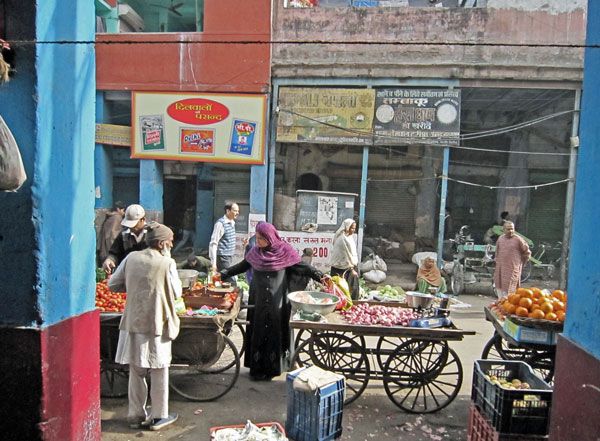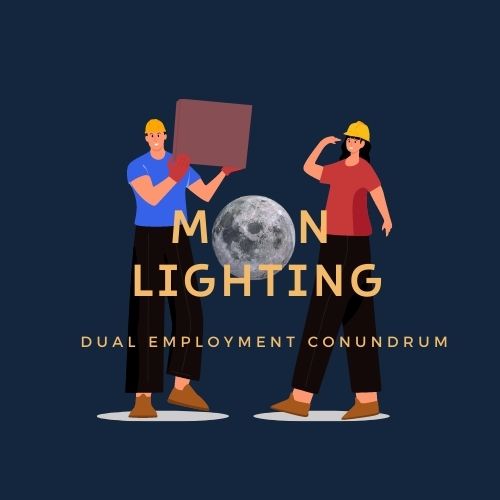Author: admin
-

REVIEWING THE MINIMUM WAGE POLICY UNDER CODE ON WAGES, 2019: A POLICY ANALYSIS
Author: Shaurya Shrestha Awasthi is a fourth-year student of the National University of Study and Research in Law, Ranchi. This article examines the significance of the minimum wage policy in enhancing the well-being of low-paid workers, reducing inequality, and combating poverty in India’s workforce. It discusses the limitations of the existing Minimum Wages Act, 1948,…
-

Comparative Models to Represent Labour Interests in Investment Treaty Practice
Author: Sarthak Wadhwa is a fifth year law student at the National Law School of India University. This piece seeks to navigate the conceptual tension between labour law and investment law by – first, examining India’s position on labour interests, as understood from her most recent Model Bilateral Investment Treaty (BIT) (2016); and, second, comparing these…
-

Moonlighting Policy: Navigating the Grey Area
Authors: Zarana Samanta and Sharmishtha Zode are second-year law students at the Institute of Law, Nirma University, Ahmedabad. Moonlighting Policy is an emerging term in the Indian context. This blog aims to discuss at Moonlighting Policy and the legal lacuna that exists in the Indian realm and hence the essential insights for the same can be…
-

TRADE UNIONS IN THE PLATFORM ECONOMY-FILLING GAPS IN THE TRADE UNION ACT, 1926
Authors: Vedant Choudhary currently reads law at Symbiosis Law School, Pune and Piyush Gupta is a student at NLSIU, Bangalore. This article argues that with the advent/growth of the Gig Economy in India, it is required that the Trade Unions Act is amended accordingly to make space for Trade Unions in the Gig Economy. INTRODUCTION…
-

CRITICAL ANALYSIS OF SOCIAL PROTECTION OF PLATFORM WORKERS IN INDIA: OLD WINE IN NEW BOTTLE?
Author: Jahanvi Garg is an advocate, practicing at the Delhi High Court, and has completed Law in 2022 from Law Centre-1, Faculty of Law, University of Delhi. The present article illuminates the often-overlooked aspect of the gig economy with specific examples from Uber, that forms the gig workforce. The paper argues that app-based platforms employ…
-

Moonlighting: The Legal Dipole of Swiggy & Wipro
Authors: Aditi Raj is currently a student at the National University of Study and Research in Law, Ranchi, India who intends to join her state’s judiciary, and therefore all her professional endeavours are towards understanding and bringing forth the rights of the people. Himanshu is a 4th-year student of B.A. LL.B. (Hons.) program at the National University…
-

THE HAWKER’S CRY: “NAVIGATING INDIA’S HAWKING AND STREET VENDING CRISIS”
Author: Vrinda Chaturvedi is a third-year student at Hidayatullah National Law University, Raipur. The article provides a comprehensive review of the challenges faced by hawkers in their fight for recognition and protection of their rights. It also traces the development of jurisprudence around Hawkers’ and Vendors’ Rights and provides a concerted analysis of judgements that…
-

Moonlighting in the Indian Paradigm: Addressing the Dual Employment Conundrum
Author: Yash Arjariya is an undergraduate law student at Hidayatullah National Law University. In this piece, the author analyses the legality of dual employment or moonlighting in the Indian paradigm. Since India does not have an employment law but employer-employee relations are governed by contracts of service between parties, the article deciphers the issue from…
-
Repeal of Right-to-Work Law in Michigan: Impact on Unions, Workers, and the Economy
Introduction: Right-to-work laws are state-level legislation that allows workers to choose whether or not to join a union or pay union dues as a condition of employment.[i] These laws make it unlawful for unions to compel workers to join the union or pay dues to get or retain employment. Unions bargain with employers on behalf of…
-
Supreme Court declines the right of Government employees to claim double overtime allowance under the Factories Act, of 1948
Introduction: The Supreme Court of India in its recent Judgement, Security Printing & Minting Corporation of India Limited v. Vijay D. Kasbe held that Government Employees cannot claim double overtime allowance under Section 59 (1) of the Factories Act, 1948 as they are civil position holders and can’t be equated to a Factory Worker. The…